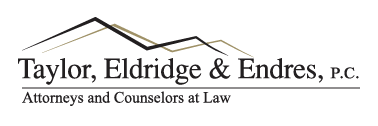We are often contacted by condominium, co-op and homeowners association boards when a homeowner or shareholder has requested copies of community documents such as financial records, contracts, homeowner contact information, etc.
The boards’ initial inclination, and direction to our office is often to do everything to prevent or limit such access. The homeowner may be a perpetual thorn in the side of the board – looking to criticize the board at every opportunity – and the instinctual approach is to “circle the wagons” and give the person as little ammunition as possible.
The problems with this approach are several. First, NYS courts have, in recent years, been issuing decisions that take an increasingly liberal approach to a homeowner’s or shareholder’s right to inspect the community association’s books and records.
While most community by-laws and several state statutes provide owners with a right to inspect specific books and records of the association, courts have ruled that the right to inspect actually includes most, if not all, of the community’s records except for those that may be considered confidential or privileged.
After all, judges have mused, the homeowners have a right to know what is going on in their own community.
Second, a board’s resistance to a community member’s request to review documents will often raise the suspicions of the petitioning homeowner as well as other community members. What, they may ask, is the board trying to hide? The more a board fights a request to review certain books and records, the more the homeowner may fight back, thinking he/she must be on the right path to discover improprieties.
We would like to suggest an alternative approach to this adversarial, and oftentimes bitter and expensive, resistance to disclosure, and that is to provide the homeowners with information they could want or need before they ask for it.
In keeping with the theme that community residents – even the most cantankerous among them – are not your enemy but rather partners in a joint venture, boards should be taking great lengths to keep the populace informed as to what is happening.
If a new roof project is contemplated, a landscaping contract is to be renewed, or a foreclosure action is completed, why not communicate this information to homeowners in a timely manner? Whether the news is good or bad, controversial or even condemning, why not share it with the residents, who will ultimately be affected by it? Most “bad news,” such as an increase in insurance rates or a law suit against the association, is not necessarily the fault of the board, and even if so, in whole or in part, keeping the event under wraps will not help public relations when it is otherwise disclosed at a later date. Signing a contract that is not the cheapest one available is not something to be ashamed of, as long as the board has good reason for doing so.
Communicating with homeowners is relatively easy nowadays, with e-mail blasts, websites, electronic newsletters and messaging all readily available to most boards at little or no cost.
Information can also be dispensed at annual and periodic information meetings of the community, allowing residents to ask questions and to weigh in on important topics. Instead of waiting for the next request to review the books and records by a frustrated or agitated owner, boards should consider regularly sharing information about the community, including financial reports, with all homeowners as it becomes available.
You may not avoid every request to review your books and records, but you may avoid some of them by conveying the message that “we are all in this together” and “we have nothing to hide” as opposed to an “Us v. You” mentality.

